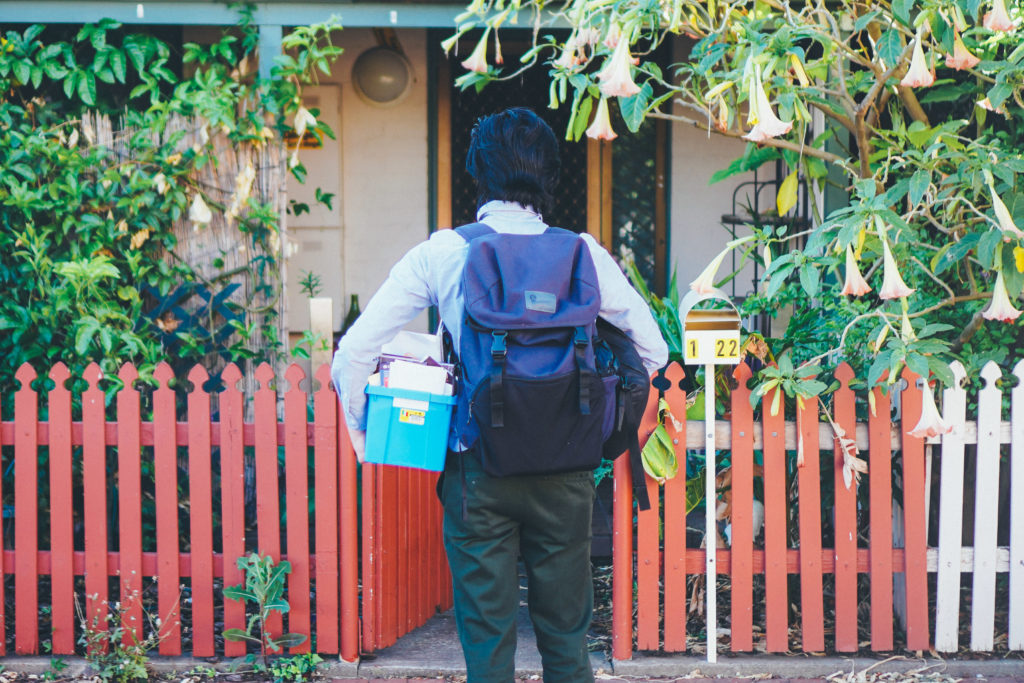The global pandemic has seen massive changes in everyone’s lives – especially when it comes to employment and housing. Without a secure income, thousands of tenants around Victoria, including international students, have struggled to pay their rent. But, as an international student, it is important to know there are many free resources and organisations designed to help you through this time, including free and confidential community lawyers. To find the right place, go to the free resource www.ishelp.org.au for information in English, Mandarin, Vietnamese and Spanish. Here, you can learn about your rights and find support services that can assist you with many life problems connected to your work, education, personal safety and housing, including securing a rent reduction.
Remember, you have rights as an international student, including the right to free legal help! Getting help won’t affect your visa, work, housing, employment or education.
Here’s what you need to know about your rights as a renter during COVID-19.
What happens if I’ve lost my job/income and can’t pay rent?
The Victorian Government is protecting tenants who have fallen on financial hardship caused by COVID-19 by banning evictions for “rent arrears” (not paying your rent when it is due). Legally, you cannot be evicted if you are struggling financially due to COVID-19 and your rent cannot be increased. This ban is in place until 28 March 2021.
If you are suffering financially as a result of COVID-19, your first action should be to ask for a rent reduction from your real estate agent or landlord. It is recommended that you pay no more than 30% of your current income on rent. Community lawyers can help you write to your landlord.
But, you might still be unable to pay your rent even at a reduced rate. If you find yourself in this situation, you may be eligible for the COVID-19 rent relief grant, which provides up to $3000 towards your rent. It is paid directly to your real estate agent or landlord. Previously, the rent relief grant paid up to $2000, so if you have already received this amount, you can apply to receive a further $1000. There are certain requirements you must meet in order to be eligible for the COVID-19 rent relief grant – check your eligibility here.
If you and your landlord have agreed on a rent reduction, you can register your agreement with Consumer Affairs Victoria. While you don’t have to register your agreement, you must do so if you are applying for the rent relief grant. Register your agreement with Consumer Affairs Victoria here.
What if my landlord is pressuring me into leaving because I cannot pay rent, or providing misleading information about the rental laws that protect against evictions during COVID?
If your real estate agent or landlord is unwilling to reduce your rent, you can escalate the conversation to Consumer Affairs Victoria. CAV can step in to mediate your dispute and make sure a fair agreement is reached. You can register for mediation by filling out this form. A community lawyer can help you with this.
If your real estate agent or landlord refuses to participate in the mediation, or you cannot come to an agreement through the mediation process, the Victorian Civil and Administrative Tribunal (VCAT) has the power to make a binding order to reduce your rent, even if the landlord disagrees. A community lawyer can help you with this process.
The Australian Securities and Investments Commission urges renters to remember that unsolicited financial advice is illegal. This means that your real estate agent or landlord is not legally permitted to advise you on your finances, like telling you to use your superannuation to pay the rent. Let a community lawyer know if this is happening to you.
What if I’m living in an informal tenancy or rooming arrangement?
Many international students are opting for informal tenancies, where the main contact and person you pay your rent to is not a real estate agent or landlord, but rather another tenant. These arrangements usually involve sharing a room or property, often with many others and without a written lease.
It’s important to note that in this situation, you still have rights and protections, even without a written contract or lease. However, your case might be a little more difficult to navigate, so you should chat to Tenants Victoria or a community lawyer if you are in this situation.
Where can I find help?
There are many organisations available to help international students living in Victoria during COVID-19 understand their rental rights and challenge landlords.
You can use the free resource for international students at www.ishelp.org.au to find out your rights as a renter in Victoria, and search for community lawyers and other organisations that can help you. The resource also goes through a number of other problems connected to your housing, safety, work and education. You can find out more about it here.
Carolina’s story
Before the pandemic, international student Carolina was working as a cleaner. While she’d heard about COVID-19, initially it didn’t really concern her.
“At the beginning, I understood there was a pandemic, but I didn’t think it would get like this,” she says. “I thought I would just have to stay home for a bit and it would be okay. But then everyone started talking… and I got scared.”
The situation was becoming increasingly difficult, and as an international student, Carolina wasn’t able to receive financial support from the government.
“When JobKeeper started, they said they couldn’t keep me on anymore because I’m not a resident. They couldn’t pay me,” she says. “I decided to stay here, because the virus was back home too and Australia had handled it really well. Even if I wanted to go back to my country, I can’t because the flights are too expensive.”
Carolina decided to stay in Australia, despite having no income. But, she still had to pay for her visa and study in order to legally remain in the country. She knew things weren’t going to improve in the near future, so she contacted her real estate agent to discuss her options.
‘I want to do the right thing,” she says. “I tried to negotiate but they refused all my offers. I tried all the time to pay our rent, but they kept refusing to reduce it. They were pushing me and saying that if I couldn’t afford the rent then I needed to find somewhere else.”
Carolina’s real estate agent wasn’t open to a rent reduction, instead telling her that she was liable for break lease fees if she wanted to move out. Carolina was under pressure to pay money she didn’t have.
Unfortunately, Carolina’s situation is just one of many. Renters across Victoria are struggling to pay rent and negotiate a rent reduction. International students are in an even more difficult position, given that 60% have lost their jobs and can’t receive financial support from the government.
So, Carolina took it upon herself to get independent advice.
“That’s why I contacted IMCL to help me, because this was really bad … and my English and the fact that I’m only a student made it even harder.”
Carolina worked with IMCL Senior Lawyer Louisa Bassini to navigate her situation. Louisa explained that due to new temporary laws, her landlord couldn’t evict her during the pandemic, and that she couldn’t be charged lease break fees while undergoing severe hardship.
“I felt better after I spoke to Louisa… [she] is going to help me,” says Carolina. “Before, I felt alone and didn’t know what to do. Now I have someone. I feel really safe with her.”
Together with Louisa, Carolina went into mediation with her landlord to try and negotiate a rent reduction. Her landlord initially refused and threatened to keep Carolina’s bond money, which made her pretty scared and keen to give up. But with Louisa’s full support, Carolina decided to assert her rights and apply for a rent reduction through VCAT.
Eventually, VCAT took Carolina’s severe hardship and loss of income into account. She successfully secured a fair rent reduction of 50%, meaning she was able to remove a lot of the stress around her financial situation. Now, Carolina feels really assured about her future and has been able to move into a more affordable home.







